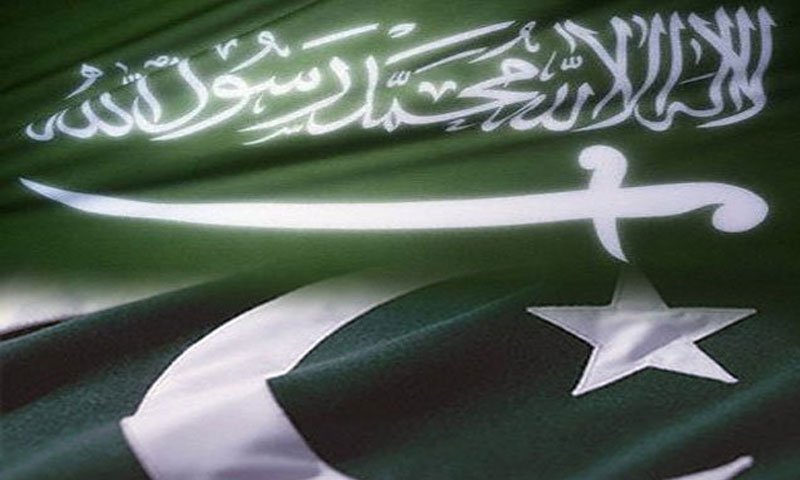
Pakistan and Saudi Arabia have recently embarked on a transformative journey towards economic cooperation, marked by the signing of 27 Memorandums of Understanding (MoUs) valued at $2.2 billion across multiple sectors. The agreements, which cover vital industries such as agriculture, energy, information technology, and mining, were signed during the Saudi delegation’s high-level visit to Islamabad. The delegation, led by Saudi Minister for Investment Sheikh Khalid Bin Abdul Aziz Al Faleh, was warmly received by Pakistan’s leadership, including Prime Minister Shehbaz Sharif and Chief of Army Staff (COAS) General Asim Munir.
This strategic partnership signals the beginning of a new chapter in the two countries’ already strong bilateral relations. The focus of these agreements is not only on short-term gains but also on building long-term, sustainable economic cooperation, which will benefit both nations for decades to come. During the signing ceremony, Prime Minister Shehbaz Sharif emphasized that the MoUs represented the “great sincerity and affection” shared between Saudi Crown Prince Mohammed bin Salman (MBS) and the people of Pakistan. He assured that the agreements would be implemented with the utmost urgency, avoiding the traditional bureaucratic delays that often slow down such large-scale projects.
Sharif’s government has shown a clear commitment to moving beyond paperwork, focusing on tangible results in sectors that are critical for Pakistan’s economic stability and growth. He was keen to highlight Pakistan’s improved economic outlook, crediting Saudi Arabia’s support in securing the recent IMF program. The prime minister’s optimism was further supported by the sharp reduction in inflation from 32% to 6.9% and a significant decrease in the policy rate from 23% to 17.5%. This sets the tone for Pakistan’s evolving economic environment, which now seems primed for foreign investments.
Saudi Minister for Investment Sheikh Khalid Al Faleh echoed the same optimism during his speech at the Pakistan-Saudi Business Forum. He spoke about the “limitless” potential for economic cooperation between the two nations, emphasizing that these agreements were only the starting point of a deeper partnership. Al Faleh’s comments reflected the Kingdom’s broader Vision 2030 strategy, which seeks to diversify Saudi Arabia’s economy by investing in sectors such as energy, technology, and infrastructure, where Pakistan is seen as a key partner.
During his meeting with COAS General Asim Munir, Al Faleh praised Pakistan’s efforts in recent years to stabilize its economy and reduce bureaucratic red tape. The creation of the Special Investment Facilitation Council (SIFC), designed to provide a “one-stop-shop” for foreign investors, was highlighted as a critical move to ensure that Saudi investments are fast-tracked. Munir assured the delegation that the traditional “red tape” would be replaced by “red carpet” treatment for Saudi investors, further solidifying Pakistan’s commitment to making foreign investments a priority.
The MoUs signed cover a wide range of sectors, but particular emphasis was placed on mining, renewable energy, IT, and agriculture. Pakistan’s untapped mineral reserves represent a lucrative opportunity for Saudi investors, while the energy and IT sectors provide avenues for collaboration in areas critical for both countries’ long-term growth. The agreements are part of a broader push to diversify both economies and reduce dependency on single industries—oil for Saudi Arabia and textiles for Pakistan.
This diversification aligns with Saudi Arabia’s Vision 2030, which aims to transform the Kingdom into a global hub for innovation, technology, and renewable energy. Pakistan, with its strategic location and abundant natural resources, provides an ideal partner in this regard. Moreover, the cooperation in agriculture and food production is expected to not only benefit the economies of both nations but also contribute to regional food security.
The implications of this economic cooperation extend far beyond the bilateral relationship between Pakistan and Saudi Arabia. As Pakistan works to stabilize its economy and attract more foreign investment, the country’s strategic geographic location at the crossroads of South Asia, the Middle East, and Central Asia becomes increasingly important. For Saudi Arabia, Pakistan serves as a gateway to new markets, particularly in Central Asia, where Riyadh has been keen to expand its influence.
In conclusion, the signing of these MoUs marks a significant step forward in the already strong relationship between Pakistan and Saudi Arabia. The agreements not only open up new avenues for cooperation in key sectors but also reflect a shared commitment to long-term, sustainable growth. With Saudi Arabia’s Vision 2030 and Pakistan’s economic reforms both moving forward, the potential for future collaborations is immense. As these MoUs turn into actionable projects, both nations stand to benefit from increased trade, investment, and cooperation, setting the stage for a brighter, more prosperous future.
